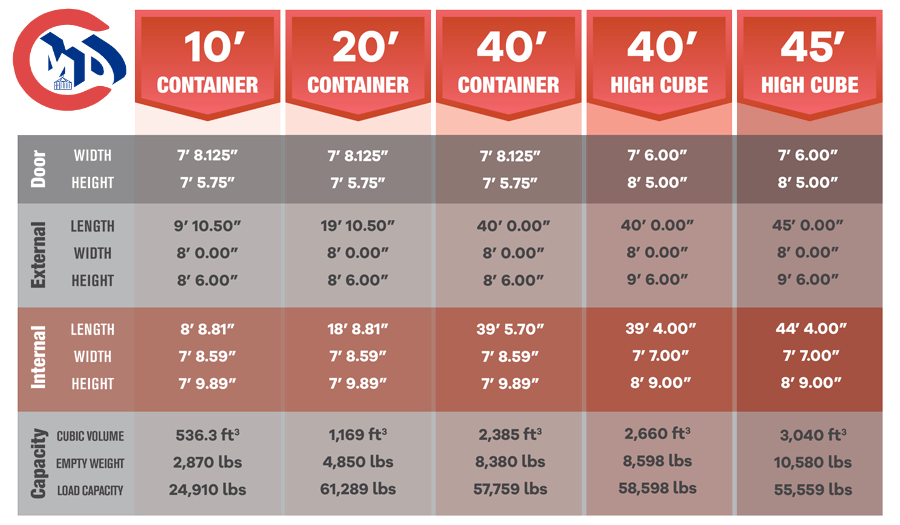Shipping Container Sizes For Diverse Shipping Methods
Shipping containers travel in a variety of ways. They can be used to carry goods overseas by boat or airplane. They can also be used for land shipping and carried by a truck or railroad car. However they get to where they are going, all shipping containers do the same job, carry goods. There are a multitude of sizes available to do this job. Sometimes the size depends on what capacity the box travels and sometimes it depends solely on the type of goods within. When you purchase or rent a shipping container keep in mind that you should shop for the one that best fits your shipping needs, your shipping method and the needs of your items within the container.
Steel containers are the most common for retail goods. When they are used for overseas shipping they are anywhere from 8 feet to 45 feet with the most common sizes being 20 feet and 40 feet. These number measurements indicate the outside length. The standard outside width and height is 8 feet. The inside dimensions may depend on the thickness of the walls and roof, so be sure to check before you buy a container.
Containers for land based shipping tend to be smaller and not necessarily made from metal. Plastic drum containers can be used for both land based and overseas shipping because they can carry liquids. If shipping by boat or airplane, these drums may even be packed inside a larger shipping box. For items shipped by railroad, the large metal containers common in overseas shipping are useful. The size 40 container is used frequently as two can be stacked on each flatbed car. The great thing about shipping by train is that an entire car can be one big container for goods such as open top cars full of coal or rocks.
Shipping by truck requires smaller mobile containers. There are many standards and rules that all shipping venues must obey, but trucks may have the most because they work on roads alongside everyday people. Because of this, most trucks are large, enclosed storage boxes that have their cargo stashed from sight. Shipping containers sent this way are often much smaller and often nontraditional to overseas and freight train shipping. Trucks can also have an open bed chassis to carry some of the more traditional container sizes such as a 20 foot, but they are more likely to carry mini containers.
Air shipping is perhaps the most interesting because it is nothing like the other types of shipping. Air shippers make their own rules and have their own container sizes that are labeled in a much different way. The most common are the LD series. Sizes for this series are designated by LD and a number from 1 to 29. There are four main types of containers shipped by air: pallets that are great for conveyor belts, contoured containers which allow secure protection of goods, lower deck containers that fit into the lower deck of an airplane that is already filled with other goods, and box like containers that often hold other containers. Unlike the other types of shipping where weather is a factor, containers shipped by air are often more of a variety of materials. However you ship your goods, be sure to check the shipping container sizes for that method of shipping. You will find that some containers can be used for assorted venues, but you will need to know where the norm is not applicable.
Ramiro Poeschl reviewed many of shipping container sizes [https://www.allpurposeshippingcontainers.com/] and steel storage containers [https://www.allpurposeshippingcontainers.com/]. Please visit my site for latest update.
Custom Shipping Container Dimensions






